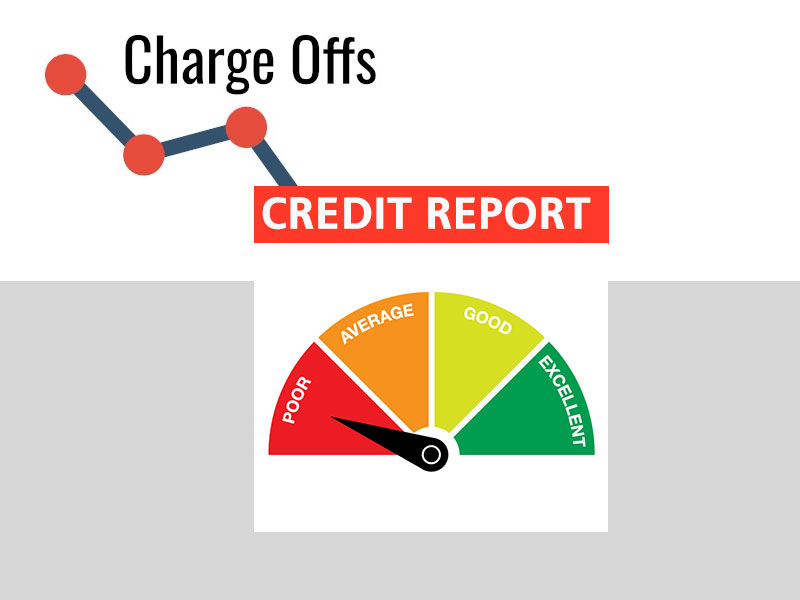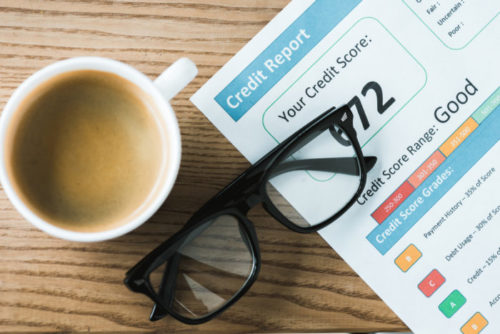
Debt delinquency typically results in legal action from the initial creditor or a charge-off. When a borrower becomes substantially delinquent, the creditor is likely to cut their losses and sell the debt, attempting to recoup some of the debt.
When a creditor sells a debt or writes it off, it is considered charged-off, which is not ideal for the consumer.
A charged-off debt can lead to severe repercussions to the debtor’s credit report and score. Additionally, the debtor still owes the money, and new collectors might seek legal action.
In terms of credit cards, the consumer will still owe the debt until the statute of limitations is reached or the debt is settled, discharged, or paid in full. Regardless of the method involved in resolving the debt, every borrower or credit card user should be aware of the charge-off process and its effect on creditworthiness and future borrowing capabilities.
Additionally, if you experience a charged-off debt, it is necessary to know your options regarding payment, obligation, and dispute.
Table of Contents
Process of a Charge-Off

When a credit issuer deems a debt uncollectible — typically after six consecutive months or 180 days of nonpayment — they will charge off the debt. However, nonpayment is not the only way to experience a charged-off debt; a creditor may also take action if payments are consistently below the minimum payment threshold over the same period.
The creditor reports the loss and failure to pay to the credit bureaus, which leads to a falling credit score. When future lenders see the issue on your report, they will see you as a risk. If approved at all, riskier loans come with higher than average interest rates.
Unfortunately, even paying off the debt will not remove the label or status from your credit report. Charge-offs remain on reports for seven years.
Debtors can get the blemish removed sooner, but it will require negotiations with the original lender. However, no negotiation will take place until after the debt is paid.
Depending on the circumstances for nonpayment, some creditors are willing to resolve the issue internally and remove the charge-off from your reports. However, you will probably need to show good payment history and have an explanation for the delinquency.
How a Charge-Off Affects Your Credit Report
When reviewing your credit report, you will see sections labeled “accounts in good standing” and “negative accounts” or “negative items.” Charged-off accounts will move to the negative side of your credit report because they imply derogatory activity.
The negative entry will include details about the account, specifically the amount due and the number of days delinquent in 30-day increments. The entry balance can change if the lender or creditor sells the debt. The balance owed to the initial lender will change to zero, but it will remain an unpaid charge-off.
For seven years, the negative entry will remain on your credit report labeled as paid or unpaid. You cannot remove it unless you prove the details are inaccurate or negotiate with the original lender. If you pay the debt, the derogatory remark will stipulate that, but all charged-off debts remain as negative accounts.
However, some lenders look more favorable on paid versus unpaid charge-offs. Therefore, it is likely still in your best interest to resolve all outstanding debts.
How a Charge-Off Affects Your Credit Score
You cannot miss payments on any loans or credit cards without affecting your credit. The extent that each missed payment affects your score depends on several factors, including:
- Scoring system used (VantageScore, FICO, etc.)
- Score before missed payments
- Existing negative entries
Missed payments will have a cumulative effect on your score, meaning the longer an account goes unpaid, the lower your score will fall. A missed payment of 30 days, for instance, will not have the same effect as a missed payment of 60, 90, or more days.
While charge-offs will also lower your score, since they do not usually occur until after six months of missed payments, the damage to your score will already be extensive. While the effect of the blemish on your report will ease over time, with scores improving through the years, know that paying off charged-off debt or collections will not affect your score too much.
The stain or stigma of charge-offs and collections can remain on a report for seven years, even after being paid. Therefore, it is better to focus your energy on paying open accounts, as they provide greater value to credit score increases.
Difference Between Collections and a Charge-Off
When the original creditor decides to charge off your account, they will probably sell the debt to a third-party or collections agency. While they will not recoup all of their losses, the sale provides some closure and transfers the uncollectable debt off their books, meaning they no longer waste funds pursuing a debt unlikely to be paid.
For consumers, the transfer of the debt is terrible and frustrating news. First, it represents not one but two blemishes on their report because the collection account will be added to the report. Second, collection agencies are notoriously aggressive, meaning consumers are bombarded with phone calls and letters demanding payment.
Many collection companies will pursue lawsuits, especially if the debt is worth their time.
Unfortunately, once a debt transfers to a collections company, the original lender no longer owns it, meaning your responsibility transfers to the purchaser of the debt. Any negotiations or payments will need to be arranged with the new debt carrier.
Because collections and charge-offs are different, your credit report will suffer double. Your score will usually drop even more once the collection account is listed.
Payment and a Charge-Off
While the label might change on your credit report, you are ultimately responsible for the original debt. The legal responsibility does not dissolve because the debt transfers from the original creditor to an agency.
Many consumers are tempted to ignore charge-offs or collections because they believe open accounts deserve more of their attention. In general, focusing on open accounts will help improve your credit score faster than paying collections or charge-offs. Still, failing to pay these negative accounts will affect your ability to obtain future loans.
Unpaid charge-offs or collections can signify an unwillingness to make good on a debt, which does not bode well for future lenders. Most lenders will look at charge-offs and collections as grounds for application denial.
While no lender wants to see such items on an applicant’s credit report, they tend to look more favorably on paid charge-offs or collections. While it does not provide the credit boost that many people hope for, paying these items does show good faith and acceptance of responsibility for the original debt.
Settlement Versus Full Payment
You will likely receive settlement offers when a debt is charged off and heads to a collection agency. Most collection companies offer settlements because they are looking for the quickest way to profit from the debt they purchased.
Still, is it better to settle a debt or pay it in full? Whatever option you choose will show on your credit report. In general, it is best to pay all of your debts in full. Full payments show future creditors that you made good on your original obligation.
However, not everyone can pay off a charged-off debt, especially when trying to stay current with other obligations. Settling debt is the quickest way to eliminate any obligation or worry of litigation. Remember that settlements will also remain on your credit report for seven years.
Additionally, a settled debt will not have the same positive effect as paying off the original obligation.
Still, staying current on open accounts is the most effective way to improve a credit score. If you must settle an old account to stay current on existing ones, so be it.
Special Considerations for a Charge-Off
Most lenders or credit issuers do not want to write off a debt as uncollectible. In most cases, a company is willing to work with the consumer, especially in times of hardship. When a company charges off an account, it is losing money. It is in everyone’s best interest to get payments back on track.
Before a loan or credit card reaches the magic 180 days past due, contact the issuer to discuss payment strategies or plans. Most companies will have options for borrowers.
If special considerations can be made, it is better for your credit report and score. It is always better to fix or pay on open accounts, and sometimes creditors are willing to keep an account on the books if the borrower is ready to make good faith payments.
Once the account is charged off, it will remain on your credit report. While some companies are willing to remove the charge when consumers prove they paid the debt, the process is hit-or-miss.
Statute of Limitations on a Charge-Off
While the 7-year timeline is the statute of limitations for the debt appearing on your credit report and often represents the point when most creditors can no longer pursue legal action, it is not so cut-and-dry.
Every state is different regarding the statute of limitations on debt, with some restricting it to three years and others extending it up to 15.
It would be best to remember that a charge-off represents a debt you owe. While the original creditor may no longer own the debt, you still owe the money. If you want to determine how long your obligation lasts, you will need to discuss that with a local attorney or finance professional.
Regardless of the timeline, it is good practice to pay what you owe. While the payment might not immediately affect your credit score or report, it does show when future lenders review your history. Some of those lenders might not hold a charged-off account against you if you paid it off.
Dispute a Charge-Off
Sometimes, companies make mistakes. Your credit report may show a charged-off account that does not belong to you or is past the seven-year expiration date. When these issues occur, the best thing you can do is dispute the entry with a specific credit agency.
All three credit bureaus have online forms and contact information to report such discrepancies. The agency will need you to prove that you no longer have the account, that you paid it off, or that the delinquency is over seven years old.
If the error occurred across two or more agency reports, the one you contact would contact the others. Unfortunately, there is no quick fix to such mistakes, so you must remain patient.
Avoiding a Charge-Off
When in the trenches of overwhelming debt, it can feel like you have no options other than letting balances go past due and transfer to collections. However, you have options to pay down past due balances and keep accounts open. The three best options include:
- Debt consolidation loans
- Balance transfer credit cards
- Creditor assistance
Unfortunately, any personal loan or credit card approval will require a decent or acceptable credit score. While you can work with bad credit lenders, remember that interest rates are typically high. The loan might not be worth it in the long run.
The original creditor is likely your best option to resolve any past due payments despite any mixed feelings. A consumer willing to work with a creditor and make acceptable arrangements is less likely to experience a charge-off.
While no creditor wants to charge off an account, it is the standard method for dealing with delinquent accounts. Once you have one or more charge-offs or collections, your credit score can be in significant disrepair.
If you are ready to turn your borrowing habits around and get to work on your credit, check out our guide: the Fiscal Tiger Credit Repair Guide.





